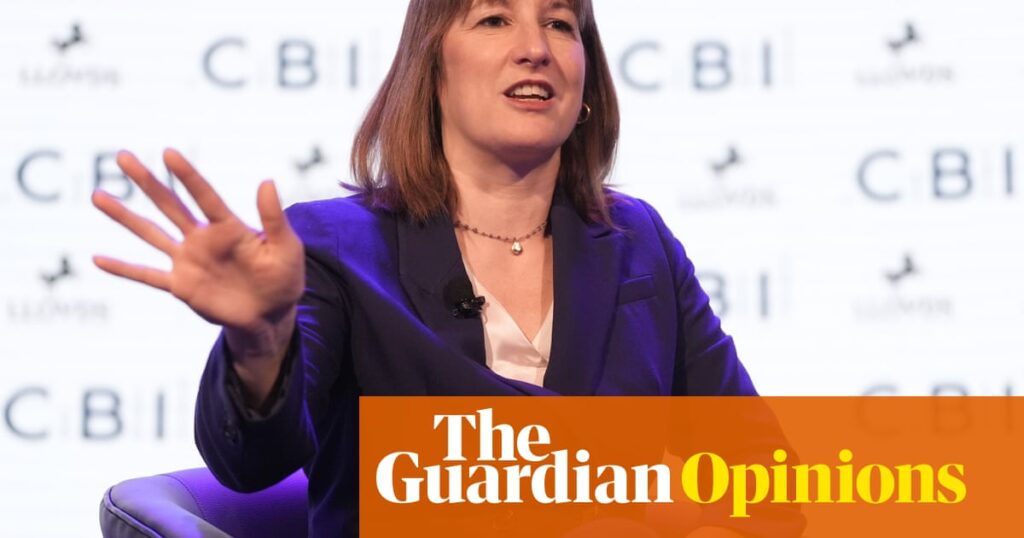Rachel Reeves hopes to use Wednesday’s spending review to tell a long-overdue story about Labour’s purpose in power that looks beyond fixing the Tories’ fiscal mess.
After the winter fuel U-turn and Labour’s battering at the hands of Reform in last month’s local elections, the chancellor’s team are well aware that voters and backbench MPs need reasons to believe.
And they are irked that Reeves gets little credit for the significant uplift in public spending she is delivering for priorities including the NHS, with debate dominated instead by the coming squeeze on “unprotected” departments.
They do have a point. Day-to-day departmental spending, known in Treasury parlance as RDEL, bobbled around £300bn a year between 2010 and 2019 before shooting up during the Covid pandemic and subsequent energy crisis to hit £423bn in 2023-4.
Last autumn’s budget, let’s not forget, included a stonking £40bn-a-year tax increase and bumped up RDEL to an estimated £481bn for the current financial year, a significant jump that prompted thinktanks to increase their forecasts for economic growth.
The growth rate of spending at the back end of the parliament will be considerably lower after this early jolt, and the voracious demands of health and defence will force difficult decisions. But austerity this is not. By the end of the parliament, Labour expects RDEL to be more than £540bn a year.
News that schools spending per pupil will reach its highest ever level in real terms is an example of what the government wants to do with the extra resources it is making available.
The unfortunate truth for Reeves and her colleagues, though, is that two things can be true at the same time: the uplift in spending she has outlined is significant and will make a real difference, but it is not enough to meet the scale of the challenges the UK faces.
While the government is rightly trumpeting a jump in public investment, for example, current plans show departmental capital budgets declining in real terms in the final two years of the parliament. It seems hard to imagine that being plausible, given the crumbling state of many hospitals, prisons and schools. The “moral mission” of tackling child poverty, which Reeves has talked about, may also demand additional resources.
The government badly needed a clearer story from the outset about what it wanted to achieve. But it will need it all the more if, as seems increasingly likely, it decides to come back to the country with more tax rises.
Voters don’t just want to hear the what (filling the “black hole” in the public finances) but also the why.
The economist Mariana Mazzucato – whose idea of the “mission economy” Keir Starmer borrowed to create his cross-party, thematic approach to government – last week put her finger on one reason Labour may have struggled to explain its purpose.
Speaking at a conference hosted by the IPPR thinktank, she said a primary mistake had been to try to make restoring economic growth a mission in itself.
“Growth is not a mission,” she said. “The whole point about missions was to stop just talking about growth, focus on the problems, and design the solutions to those problems in such a way that drives not just the rate of growth but the direction.”
She added: “In a country like this one, where the private sector does not invest enough … missions should be designed in such a way to catalyse that missing private-sector investment. And so, starting with the problems, whether it’s net zero, whether it’s health problems for cities, whether it’s problems like knife crime, having really clear goals that you can actually answer yes or no, did we achieve it?’”
Mazzucato argued that Labour’s aspiration to become a clean-energy powerhouse was the only one of its five “missions” that might qualify as such by her definition.
after newsletter promotion
She suggested that defence, too, which if pursued strategically could catalyse research and development and create jobs in a targeted way in left-behind areas, had mission-like characteristics. Economic growth for its own sake, not so much.
Another reason Reeves now needs to remind the public what she stands for results from a sombre pre-election rebrand aimed at overcoming voters’ preconceptions about having a woman – specifically, a Labour woman – in charge of the country’s purse strings.
One Labour pollster recalls a focus group early in Reeves’s tenure as shadow chancellor when she had visited a construction site with Starmer, and one voter wanted to know: “Why has he taken his wife with him?”
The sharp suits, serious demeanour and relentless focus on tough choices are a riposte to this kind of regrettable “Rachel from accounts” nonsense, but they have resulted in a reductive idea of what Reeves stands for.
Expect to hear more on Wednesday, then, about the scourge of child poverty, as well as the need to tool up to face the changed geopolitical context – and to rebalance the economy away from London and the south-east.
Even if she sticks with current spending plans for the rest of the parliament, Reeves may yet have to make more tax increases in the autumn. It looks increasingly likely the Office for Budget Responsibility (OBR) will decide to downgrade its projections for productivity growth.
The consultancy Oxford Economics suggests that if the OBR moves into line with the consensus on productivity – and cuts its growth forecasts as a result – it would leave the chancellor having to find an extra £20bn a year.
Given that she is determined not to abandon her fiscal rules, that would mean tax increases. Reeves will need to be ready to tell a compelling story about why these are necessary. That should start this week, with a clearer and more hopeful picture of what Labour wants to achieve.
